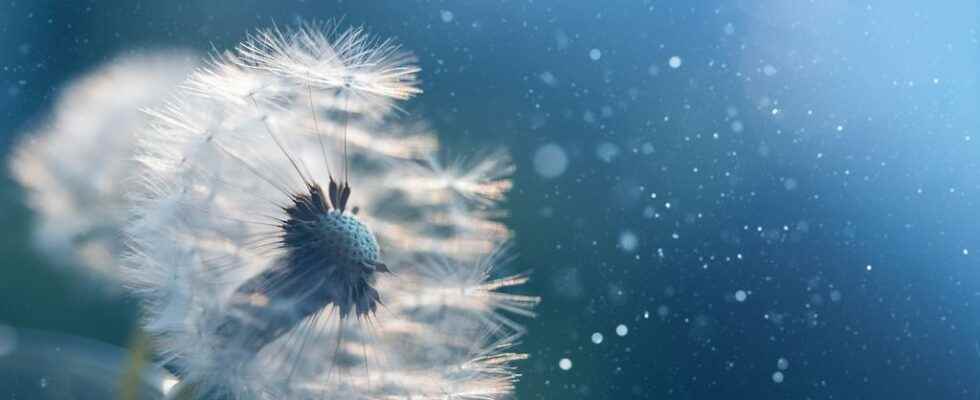According to a study from the University of Nicosia, there is a link between the increase in covid-19 cases and the spread of pollen grains in the spring.
Since the return of sunny days, the pollen season so dreaded by allergy sufferers is in full swing. At the moment, the concentration of grass pollen is at its highest in a large number of departments and are responsible for symptoms that are sometimes very debilitating in people with allergies (rhinitis, conjunctivitis, urticaria, etc.). But now a study from the University of Nicosia (Cyprus) indicates that pollen grains could also serve as “means of transport” for covid-19.
According to Cypriot researchers, there would be a link between the link between the increase in coronavirus (COVID-19) infections in humans and pollination in March, April and May. “Airborne virus particles or infected saliva droplets can adhere to pollen grains that are very common outside and inside rooms at this time of year. ”The researchers explain that“ in certain environmental conditions of ambient air temperature, relative humidity and wind speed, airborne pollen grains play a significant role in the transport of airborne viral particles, even when the social distance of 2 m is maintained“.
Pollens increase the risk of catching Covid-19
A few months ago, a study conducted by the Technical University of Munich (in Germany) also showed that a high level of pollens in the air would be associated with a higher incidence rate of Covid-19 in population. To reach this conclusion, the German researchers analyzed data from 31 countries between February 27 and April 3, 2020. They found that an increase of 100 pollen particles per cubic meter was equivalent to a rate of infection. by the coronavirus higher by 4%.
Thus, a high concentration of pollen in the air could result in an increase in the infection rate of 10% to 30% in a given region. More surprising no doubt: this association also concerned people not allergic to pollen.
How to explain these results? The researchers (who published their work in the specialized journal PNAS) hypothesize that pollens, when they are deposited inside the nose, on the nasal mucosa, are able to “block” certain genes (located in epithelial cells) involved in the antiviral response.
Already in September 2019, scientists had shown that, during the pollen season, the risk of developing a respiratory infection with rhinovirus or respiratory syncytial virus was greater. The protective mask against covid-19 could therefore prove to be necessary during the height of the pollination season.
Sources:
Read also :
Subscribe to the Top Santé Newsletter to receive the latest news for free
